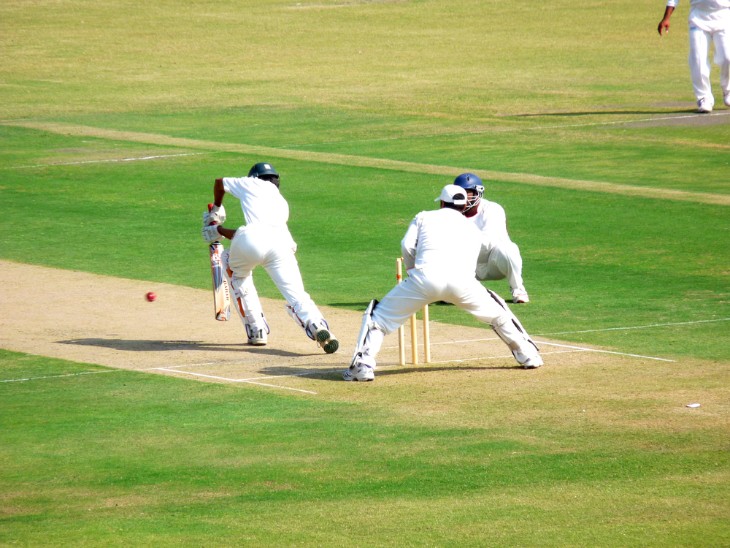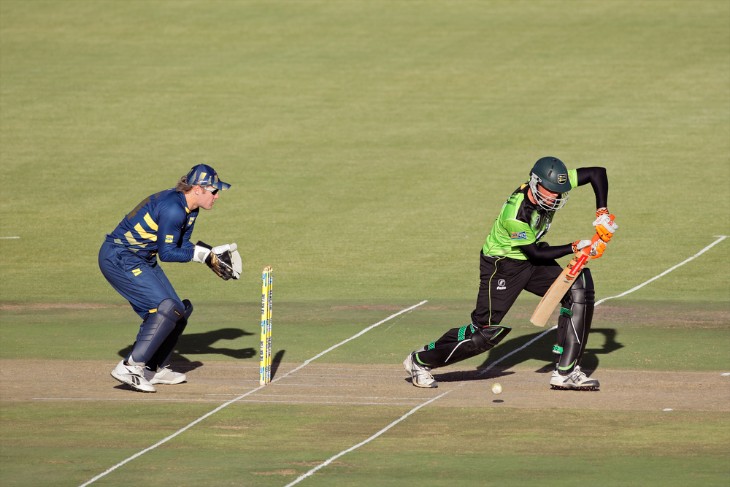The early years of cricket in the United Kingdom witnessed several pioneering moments that contributed significantly to the development of the sport. One such moment occurred in 1744 when the first recorded inter-county match took place between Kent and All-England at the Artillery Ground in London. This fixture marked a significant step towards organized cricket, setting a precedent for future county matches and competitions. It laid the groundwork for the formation of county cricket clubs, which would later become integral to the cricketing landscape in the UK.
Another pivotal moment in the history of cricket came in 1788 when the White Conduit Club was established in Islington, London. This club played a crucial role in popularizing cricket and contributed to the standardization of the Laws of Cricket. The White Conduit Club later evolved into the modern-day Marylebone Cricket Club (MCC), which remains one of the most prestigious institutions in the world of cricket. The MCC's commitment to upholding the spirit of the game and its responsibility for maintaining the Laws of Cricket have endured throughout cricket's history.
The Birth of County Cricket
The 19th century saw the emergence of county cricket as a significant force in the UK's cricketing landscape. County cricket became a breeding ground for talent and a platform for aspiring cricketers to showcase their skills. The first official county cricket match was played in 1825 between Sussex and Kent. This marked the beginning of a competitive structure that would shape the careers of countless cricketers.
The County Championship, formally established in 1890, became the premier domestic cricket competition in the UK. It provided a structured framework for county teams to compete against each other, fostering intense rivalries and producing some of the game's most legendary figures. Players like W.G. Grace and Jack Hobbs gained fame through their performances in county cricket, setting records that are still revered today. The County Championship also played a pivotal role in the development of the sport's techniques and strategies, contributing to the UK's cricketing legacy.
The Ashes Series: Cricket's Iconic Rivalry
The Ashes series is one of cricket's most iconic and enduring rivalries, steeped in history and tradition. It all began in 1882 when Australia defeated England at The Oval in London, leading to a mock obituary in The Sporting Times that stated, "The body will be cremated and the ashes taken to Australia." This whimsical remark gave birth to the concept of "The Ashes," and the urn symbolizes the ashes of English cricket's supposed demise. Subsequently, a series of Test matches between England and Australia was formalized as The Ashes, and it remains one of the most eagerly anticipated contests in the cricketing world.
The Ashes series has produced countless memorable moments, legendary players, and intense competition. It has witnessed remarkable performances from cricketing greats like Sir Don Bradman, Sir Ian Botham, and Shane Warne. The battles for the urn have transcended the boundaries of sport, captivating the imagination of cricket enthusiasts on both sides of the globe.
![]()
The First International Cricket Match
In 1877, history was made when the first-ever international cricket match took place between England and Australia at the Melbourne Cricket Ground. This historic event marked the beginning of Test cricket, a format that would go on to become the pinnacle of the sport. The match was played over four days, and Australia emerged victorious by 45 runs. Charles Bannerman, an Australian, etched his name in history by scoring the first-ever Test century, an innings of 165 runs. This landmark match laid the foundation for international cricket, and Test cricket remains the most prestigious format in the game.
The significance of this first international cricket match goes beyond the result. It represented the culmination of decades of cricketing development and innovation in both England and Australia. The concept of international cricket soon spread to other nations, leading to the formation of the International Cricket Council (ICC) in 1909. Subsequently, cricket grew into a global sport with various countries participating in Test matches and later, One-Day Internationals (ODIs) and T20 internationals. The historic clash at the Melbourne Cricket Ground in 1877 paved the way for cricket's expansion and its status as a truly international sport.
Notable Players in UK Cricket History
The United Kingdom has been home to some of cricket's most iconic and legendary players throughout its history. One such figure is W.G. Grace, often regarded as one of the sport's pioneers. Grace's career spanned the late 19th and early 20th centuries, and he made an indelible mark on the game. Known for his exceptional batting and innovative tactics, he scored over 54,000 runs in first-class cricket and was a dominant force on the field. His contributions extended beyond playing, as he played a key role in shaping the Laws of Cricket and the development of the sport.
Another luminary in UK cricket history is Sir Jack Hobbs, who remains one of the most prolific run-scorers in the history of the game. Hobbs' career spanned from 1905 to 1934, and he amassed an astounding 61,760 first-class runs, including 199 centuries. His elegance at the crease and remarkable consistency earned him the nickname "The Master." Hobbs' achievements continue to inspire aspiring cricketers and stand as a testament to the excellence that UK cricket has produced over the years.
Iconic Cricket Grounds in the UK
The United Kingdom boasts some of the world's most historic and iconic cricket grounds, each with its own unique charm and significance. One such venue is Lord's Cricket Ground in London, often referred to as the "Home of Cricket." Established in 1814, Lord's is not only steeped in tradition but also known for its architectural beauty, including the iconic Pavilion. It has hosted countless historic matches, including Ashes contests and World Cup finals, making it a hallowed ground for cricket enthusiasts worldwide.
Edgbaston Cricket Ground in Birmingham is another renowned venue with a rich history. Known for its raucous atmosphere, it has witnessed many memorable moments in cricket history. Edgbaston has been a fortress for the England cricket team, and its electrifying crowd support adds to the excitement of any match. Other notable grounds like The Oval in London, Old Trafford in Manchester, and Headingley in Leeds have also left an indelible mark on the sport, hosting numerous historic encounters and contributing to the UK's cricketing legacy. These iconic grounds continue to be the backdrop for thrilling cricket matches and serve as the heart and soul of the game in the United Kingdom.
Memorable Moments in Test Cricket
Test cricket, with its rich history, has witnessed numerous memorable moments in the United Kingdom. One such iconic moment occurred during the 1981 Ashes series when Sir Ian Botham, leading England as captain, produced a stunning all-round performance at Headingley. Facing an almost insurmountable challenge, Botham scored a remarkable century and then took crucial wickets, inspiring England to an improbable victory. This match became known as "Botham's Ashes" and is etched in cricketing folklore as one of the greatest comebacks in the sport's history.
Another unforgettable moment took place in 2005 during the Ashes series when England reclaimed the urn after a long 16-year drought. The final Test at The Oval saw England needing to secure a draw to win the series. It was a tense and closely-fought match that went down to the wire, with England eventually securing the draw they needed. The jubilation and celebrations that followed resonated throughout the United Kingdom, rekindling the nation's passion for Test cricket and marking a historic chapter in the sport's legacy.
One-Day International Classics
One-Day Internationals (ODIs) have also provided their fair share of classic moments in UK cricket history. The 1983 Cricket World Cup final, held at Lord's Cricket Ground, remains one of the most iconic matches in ODI history. India, led by Kapil Dev, were facing the mighty West Indies in the final. India, batting first, were struggling at 183 for 6 before Kapil Dev played an astonishing innings of 175 not out, guiding his team to a total of 266. India went on to win the match, marking their first-ever Cricket World Cup triumph and forever etching Kapil Dev's name in cricketing legend.
In 2019, England hosted the ICC Cricket World Cup, and the final between England and New Zealand at Lord's Cricket Ground delivered another unforgettable ODI moment. The match ended in a dramatic tie, and the Super Over that followed also resulted in a tie. England was declared the winner based on the boundary count rule, securing their first Cricket World Cup victory. This thrilling final showcased the intensity and unpredictability of ODI cricket and solidified the event's place in the annals of UK cricket history.

T20 Cricket: A Modern Revolution
The 21st century brought a modern revolution to the world of cricket with the advent of Twenty20 (T20) cricket. This shorter format of the game, with matches typically lasting around three hours, has injected a new level of excitement into the sport. The United Kingdom played a pivotal role in the evolution of T20 cricket, with the establishment of the NatWest T20 Blast in 2003, the first domestic T20 competition in the world. The tournament introduced a more dynamic and fast-paced version of the game, appealing to a broader audience.
In 2010, England hosted the ICC World Twenty20, further solidifying the country's connection with the format. The tournament showcased thrilling encounters, and the final, held at Lord's Cricket Ground, saw England triumph over Australia in a tense finish. T20 cricket has since become a global phenomenon, with the rise of franchise leagues like the Indian Premier League (IPL) and The Hundred, which have attracted top international talent and captivated cricket fans worldwide.
Conclusion
In conclusion, "UK's Most Historic Cricket Matches" delved into the rich tapestry of cricket's history in the United Kingdom, shedding light on its origins, the evolution of its rules, pioneering moments, and the emergence of county cricket. We explored the iconic rivalry of The Ashes and the inception of international cricket with the first-ever Test match. The article also celebrated legendary players and showcased the hallowed cricket grounds that have witnessed countless historic moments.
We delved into the memorable moments that have etched themselves into the annals of UK cricket history, from Sir Ian Botham's heroics in 1981 to England's triumphant return to glory in the 2005 Ashes. The evolution continued into the dynamic world of One-Day Internationals, with unforgettable matches like the 1983 World Cup final and the dramatic 2019 World Cup final at Lord's.
For more information:


